Paul “Butcher” Vachon, the last of the Vachon family, has died.
He was 86.
For the last number of years, he lived in a retirement home just over the Quebec-Vermont border, with his wife, Dee.
More recently, he had lost his voice and could not speak in more than a whisper.
Through the years, he had numerous ailments, including throat cancer.
Vachon was born on October 7, 1937, in Ville Emard, on a farm outside of Montreal, one of 12 children — he was the seventh born.
“Traditionally the French-Canadians were rural people, uneducated, so they did manual work,” Vachon once explained. “My father had the record for the one-arm lift when he was 19 years old. It was 190 pounds he could lift over his head with one arm.” Their father was a police officer.
His older brother, Maurice, was an accomplished amateur wrestler, and competed in the 1948 Olympic Games in London.
Maurice, eight years old, was Paul’s idol.
“At the time Maurice went to the 1948 Olympics, it thrilled me so much that he could leave the family farm to wrestle and travel around the world; I decided at nine or ten years of age that I was going to be a wrestler and travel, too,” said Vachon. “In 1948, we only had a battery-powered radio on the farm. When Maurice was wrestling in the Olympics, the battery died. We had to walk to the general store in town and listen to their radio for the match results. It was exciting to hear my brother’s results from so far away.”
Following in Maurice’s footsteps, Paul trained as an amateur and competed in the Canadian championships. The Tragos/Thesz Hall of Fame in Waterloo, Iowa, recognized Vachon’s accomplishments as an amateur with induction in 2010.
Bulking up from 190 pounds to 240, Paul turned pro.
From there, it’s a blur.
Butcher Vachon was one of the true world travelers in pro wrestling history. In fact, he once said, “My priority was to travel.” In 1961, Maurice backed out of a tour of Australia for promoter Dick Raines, but his brother took his place. They didn’t see each other again for seven years.
“The contract I signed called for me to be in Australia for two months in 1961,” recalled Paul. “I came back in 1966. From Australia, I went to New Zealand, Pakistan, India, Africa, and Asia. I really enjoyed my stay. During that time span, I wrestled in 33 different countries.”
Paul actually debuted in Northern Ontario.
“For me, it’s great memories, because I had my first and second professional matches there. I had gone up there with my brother. I was only 17 years old. I got to work with Dory Funk Sr. in my first match, and someone else in North Bay. What was cool about it was, of course, the beautiful country around there. Lake Nippissing, that’s where the wrestling office was, owned then by Larry Kasaboski. It was called then a junior heavyweight territory, smaller guys,” Paul recalled. “My brother brought me there just on the off chance that they might break me in.”
Right from the start, there was action. “My first match in North Bay, I got thrown out of the ring. I was getting back in the ring. Somebody had torn a 2×4 off of the ice rink and hit me over the head with a 2×4. It was just a fan. Mad Dog said, ‘How did that feel? If you can take that, you can take anything in this business. It’ll teach you. Never turn your back on the fans.'”
Another early territory on his own was around Detroit-Windsor, where Paul was known as Nikita Zolotoff. (Elsewhere, he was sometimes Nikolai Zolotoff, and various other spellings.) “He told me it was a Bert Ruby creation. Ruby was a Hungarian Jew and just as Paul arrived in Detroit the Hungarian Revolution started. It only lasted a few days but Bert was enraged at the Russians. Decided to make a Communist Russian heel to get booed at. He made Paul shave his head,” said Windsor historian Jamie Greer. “Maurice told him to go train with Ruby because he’d helped Maurice get his proper training. Maurice was here very early under a mask.”
But it’s as a tag team, especially in the AWA, that the Vachon brothers became well known, and in The Pro Wrestling Hall of Fame: The Tag Teams, the Vachons are ranked in the Top 25 teams of all time.
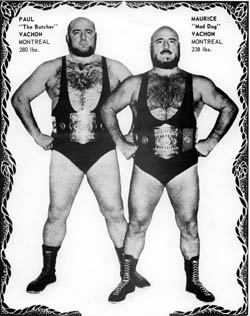
Paul and Mad Dog Vachon
It just seemed right when they teamed together, whether it was their successful runs in Calgary, Texas, Georgia or their two-year-long run as AWA tag champs. “We were like a hand and a glove. It was such a natural,” said Mad Dog. “We looked so much alike, even though he was so much bigger than me.” (The Dog is 5-foot-7, Butcher 6-foot-4.)
Butcher found that his brother was protective and wanted to be the ring general. “Once the pecking order was established, we never had any problems. In tag matches, he depended on me,” Butcher said.
Their opponents often saw them as amusing—but violent—battling brothers. “They cussed each other in French,” laughed Bill Watts. “Mad Dog would be on Paul’s case. It used to be so funny. Paul would be madder than hell at Mad Dog. They’d be cussing and I wouldn’t know what the hell they were saying!”
So many memories, said Butcher. “Yeah, that’s true. That means that nobody else but us knew what the hell we were talking about,” he said. “The thing is with Mad Dog, when you’re in a tag match and you call to communicate with each other, it’s hard because of the crowd noises and everything. It always is. With Mad Dog, it was difficult because he couldn’t whisper because of his throat injury. … So we would up shouting at one another so we could hear one another.”
When it was time for Paul to come home from Europe, Maurice reintroduced him to North American promoters. Butcher was in Kansas City when he got the invite to come to Georgia to work as a singles star. He established himself quickly, and booker Leo Garibaldi asked about having another Vachon in the territory to battle the incoming Torres Brothers. Enter Stan Vachon, a Newfoundlander named Eric Pomeroy, who learned wrestling in Toronto and had been working as Stan Pulaski, the Mad Russian.
“We wrestled as brothers for a long time. As a matter of fact, I feel that he is my brother. We wrestled for so long, and became such good friends that I feel that way about Paul,” Pomeroy said. This new Vachon duo dominated Georgia from 1966 to 1968, claiming the NWA Southern tag belts, the NWA Georgia belts and the Georgia version of the NWA World tag titles.
Mad Dog was brought in on occasion to help his brothers. “We had a run with the Torres Brothers, and they called it the Battle of the Century in Atlanta,” Mad Dog said. “There were so many people, it took me an hour to get into the building. Thousands and thousands of people. People with hundred dollar bills. ‘Hey Butcher, can you let me in?’ I couldn’t get in myself.”
When the Georgia run ended, the true brothers started teaming again, both in the ring and in business. In 1971, they partnered with Yvon Robert Jr. and a few other investors to start up Grand Prix Wrestling in Montreal, in competition to Johnny Rougeau‘s established promotion.
But it is the Vachons’ AWA World tag run from 1969-71 that established their credentials that earned them entry into the Pro Wrestling Hall of Fame in Schenectady, NY in 2004. “We made a lot of money with them around Minneapolis. Made a lot of money and drew a lot of big houses,” recalled Billy Red Lyons, who teamed with Red Bastien and others against the Vachons.
For all the wrestling, Paul Vachon is also remembered as the promoter of Grand Prix Wrestling in Montreal, beginning in 1972, where he and Maurice each owned 20%, and the other owners were Yvon Robert Sr., Lucien Gregoire, and an old promoter Jerry LeGault. The shares and partners changed through the years, but Paul was the front and center promoter.
It was the legendary Robert who suggested the Vachons promote, and he wanted to give his son, Yvon Robert Jr., a place to wrestle. Eventually Robert Jr. paired with Edouard Carpentier to buy out the Vachons.
“They came up with the money. They gave Mad Dog and I each $50,000. Our investment had been $4,000 a piece. I just put a nunber on it. They said, ‘How much do you want for your end?’ I said, ‘I want out and my brother wants out.’ They said, ‘How much do you want?’ I said, ‘Fifty thousand a piece.’ They said okay. And they found the money, gave it to us, and they lost it all,” recalled Butcher, who briefly promoted under the Celebrity Wrestling banner after.
Much of the money was invested in a television production company; “That’s really what sunk us, because I really didn’t know what I was doing,” he said.
Grand Prix is looked upon fondly, with shows in both French and English and wide distribution (including in France). “I was happy for the success we did have. It was short-lived. It was one of the most successful wrestling promotions ever up until then.”
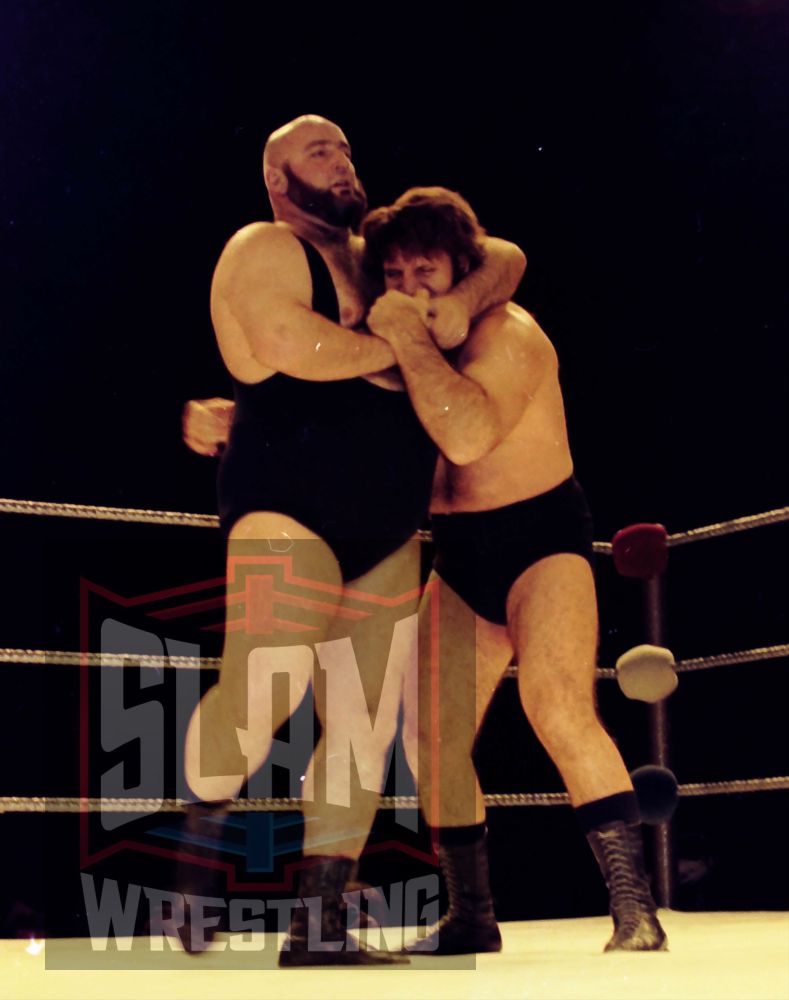
Butcher Vachon headlocks Bruno Sammartino during a WWWF match. Photo by John Arezzi
Paul Vachon’s career in-ring petered out in 1986, his final few years marred by job duty in the expanding WWF.
Post-wrestling, he travelled to fairs and wrestling shows peddling memorabilia and therapeutic magnets.
He also self-published his memoirs, first as three separate books, and then in a tighter-edited single volume.
He and his wife, Dee, settled in a retirement home in Mansonville, on the border between Quebec and Vermont. Butcher was happy to play shuffleboard, or go on trips organized by the facility. Every Christmas, he would dress up as Santa Claus — even during the pandemic when he had to perform virtually.
The aches and pains from wrestling, compounded with cancer and heart issues, slowed Butcher down to the point he needed a walker to get around. His voice faded and finally left him with little more than a whisper.
Still, he always looked ahead.
He and Dee had plans for this weekend to head to Montreal to visit with Paul Leduc. Instead, he passed away on the evening of February 29, 2024.
Paul Vachon was proud of all of his family.
He was married twice and fathered seven children.
His sister, Diane, became the wrestling star Vivian Vachon (and Paul was her godfather, given their 13-year difference in age). His stepdaughter, Gertrude, became the unforgettable Luna Vachon. In his final on-the-record conversation with this writer, he lamented that he was the last of the family left, after the death of Guy Vachon. Guy was the only one in the whole family that went higher than high school. “He worked nights to become a civil engineer. He’s built things all over the world, including the big celestial telescope in Hawaii and everything. He’s the smartest guy,” raved Paul.
In that same conversation, Butcher summed up his life: “I enjoyed what I did.”
BUTCHER VACHON PHOTO GALLERY
RELATED LINKS
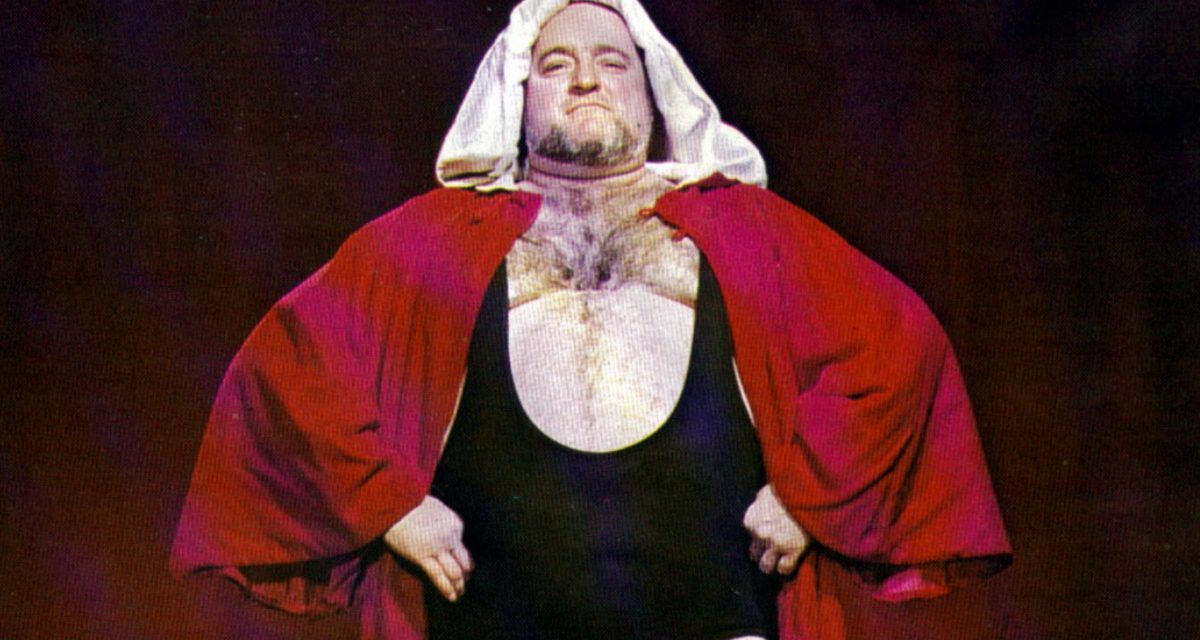
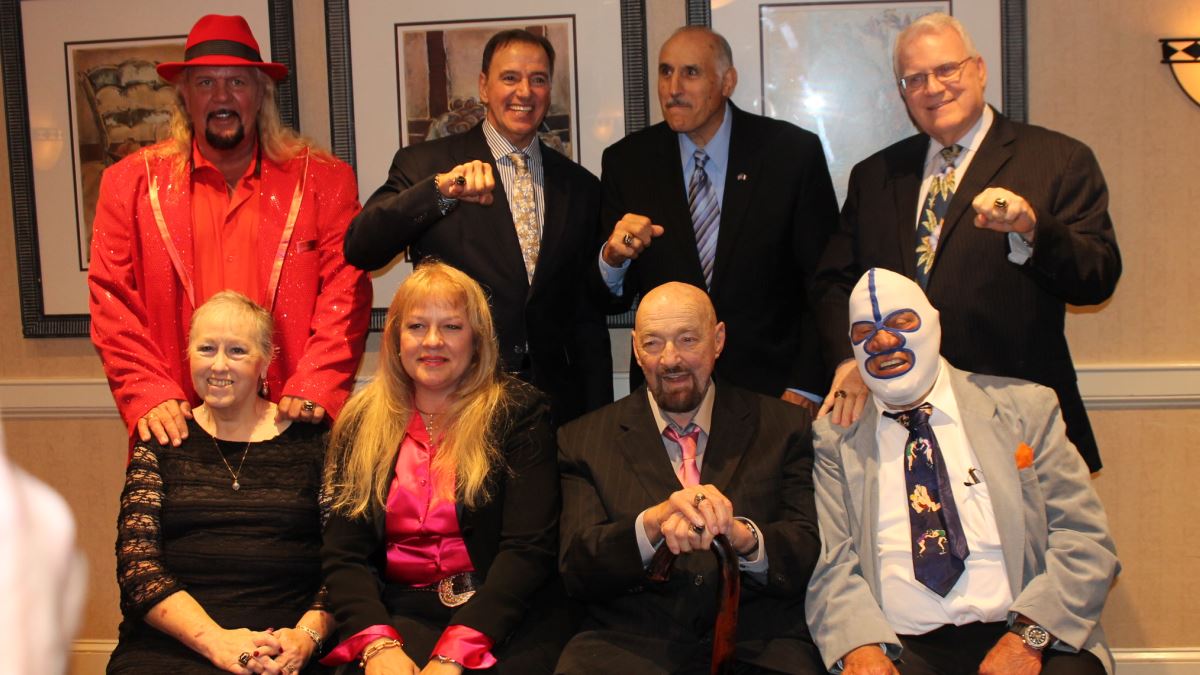
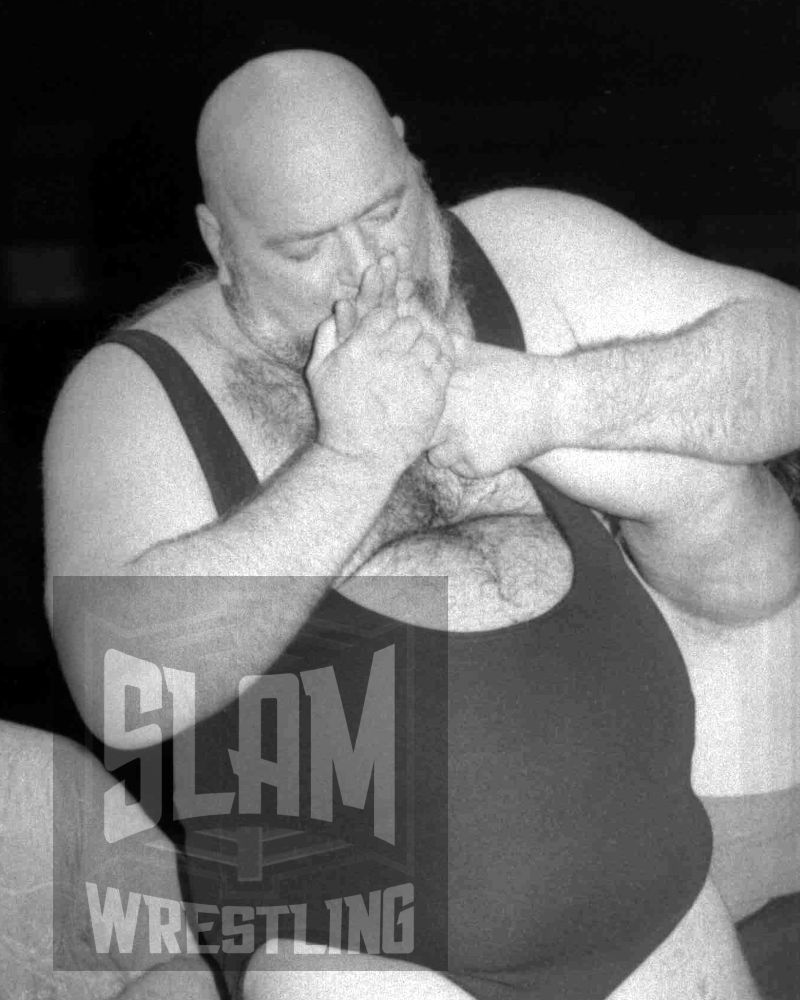
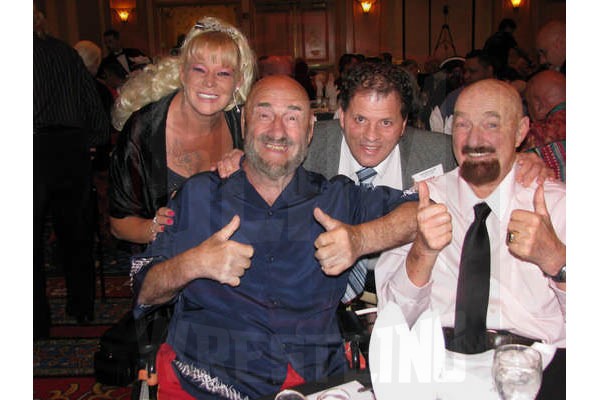
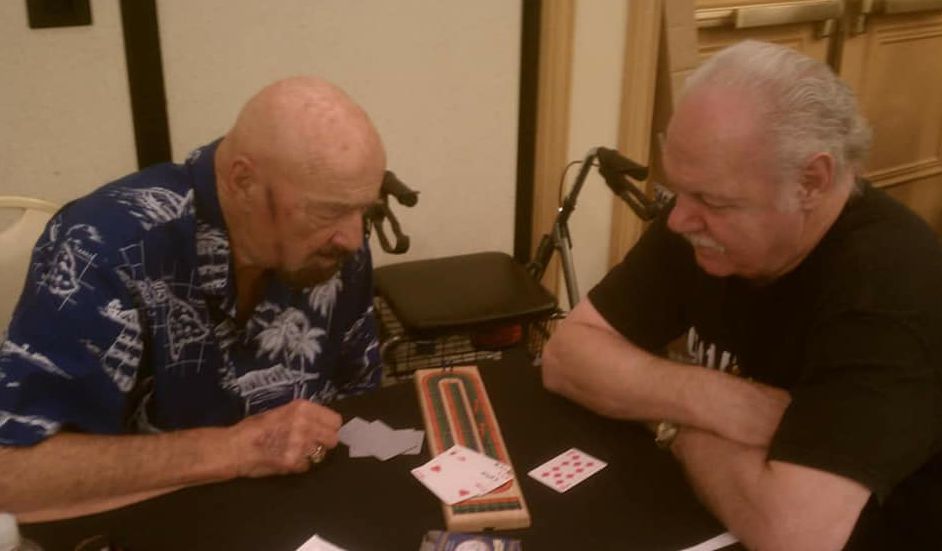
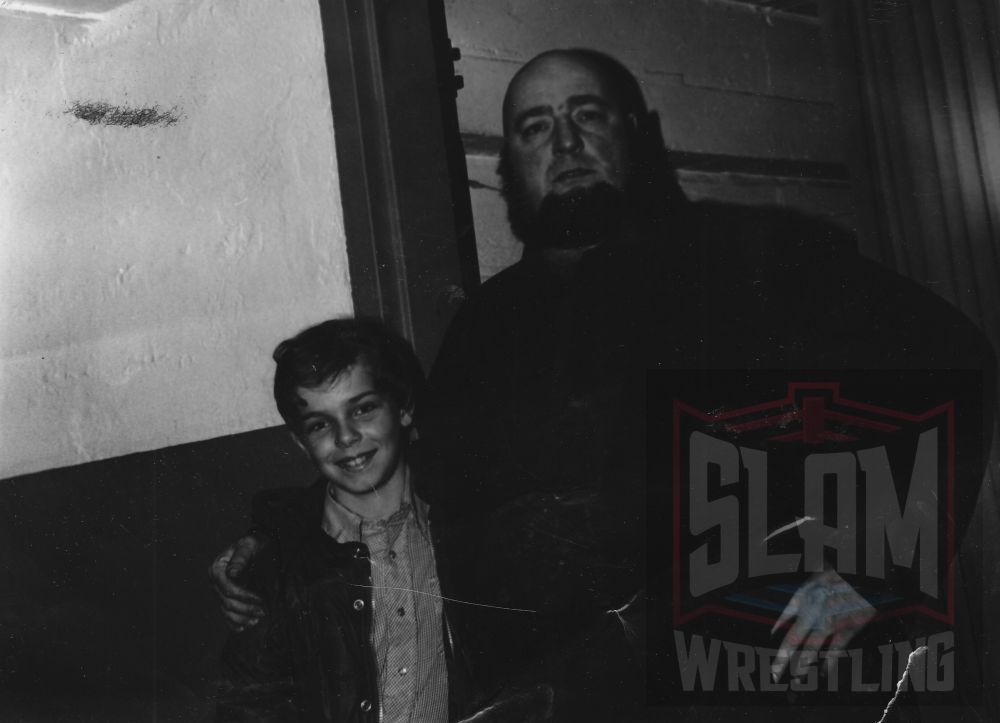
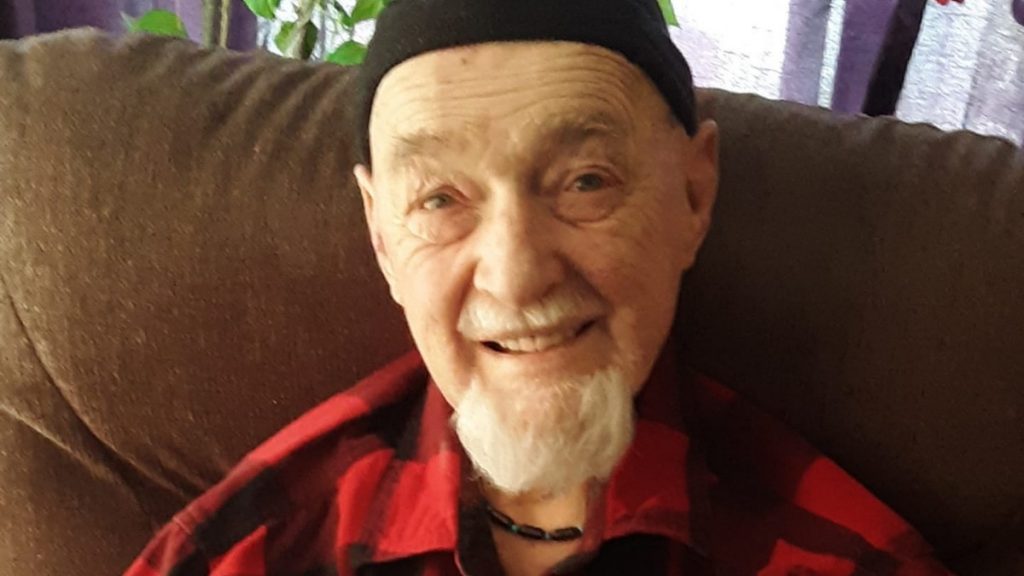
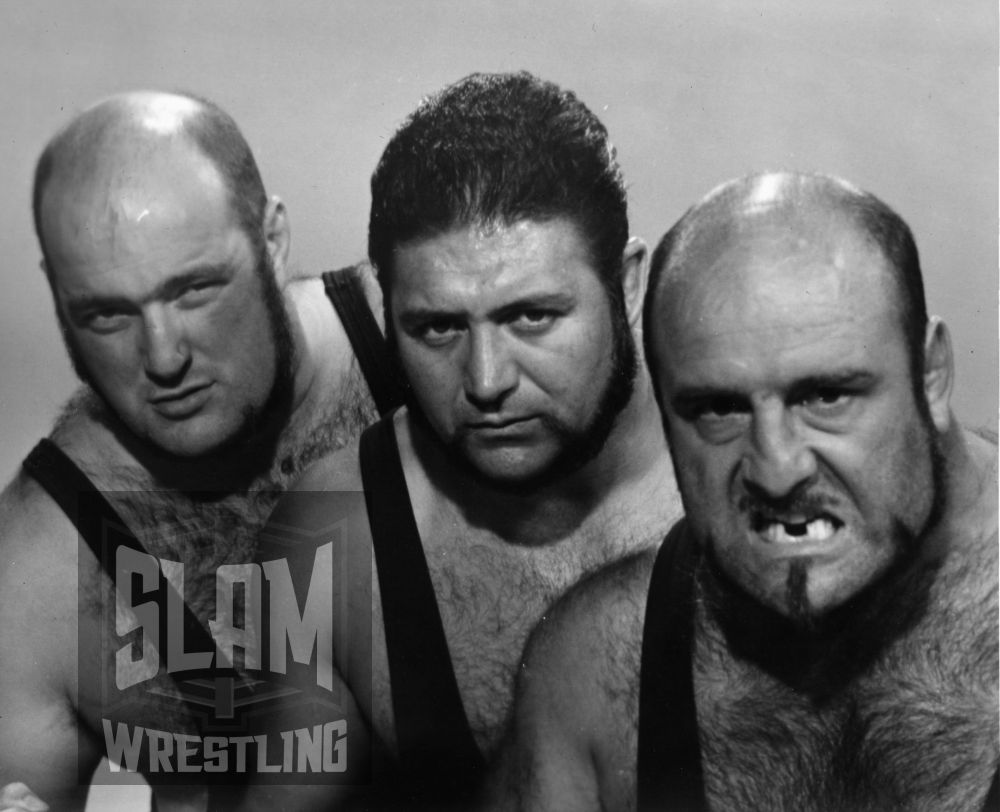
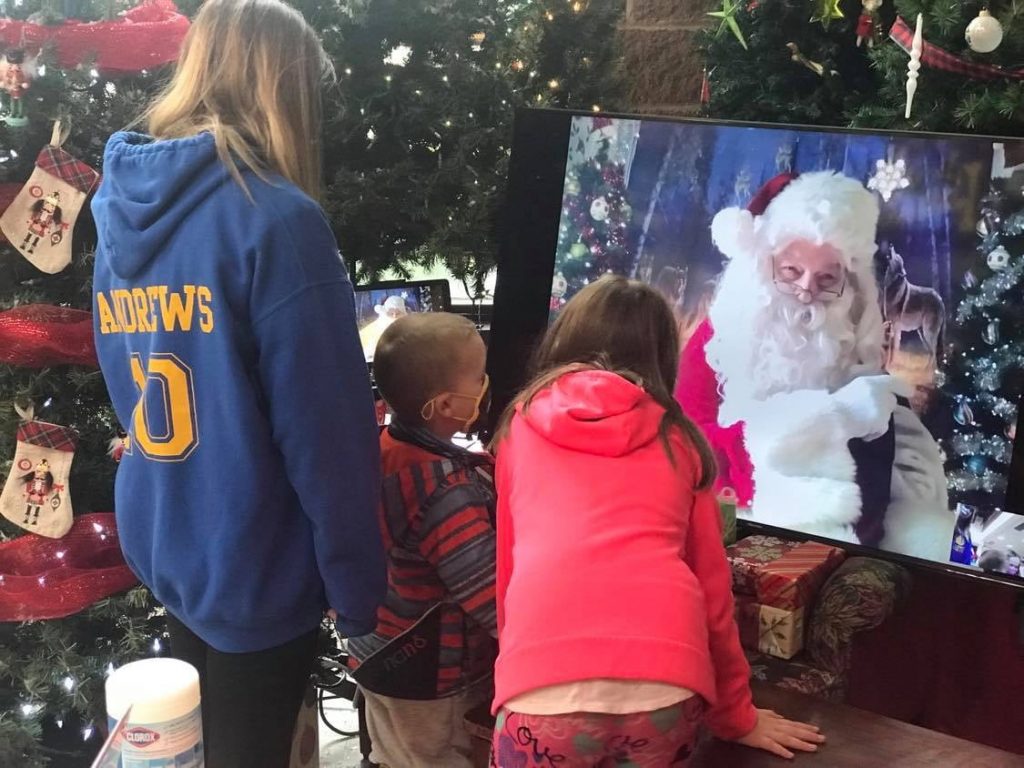
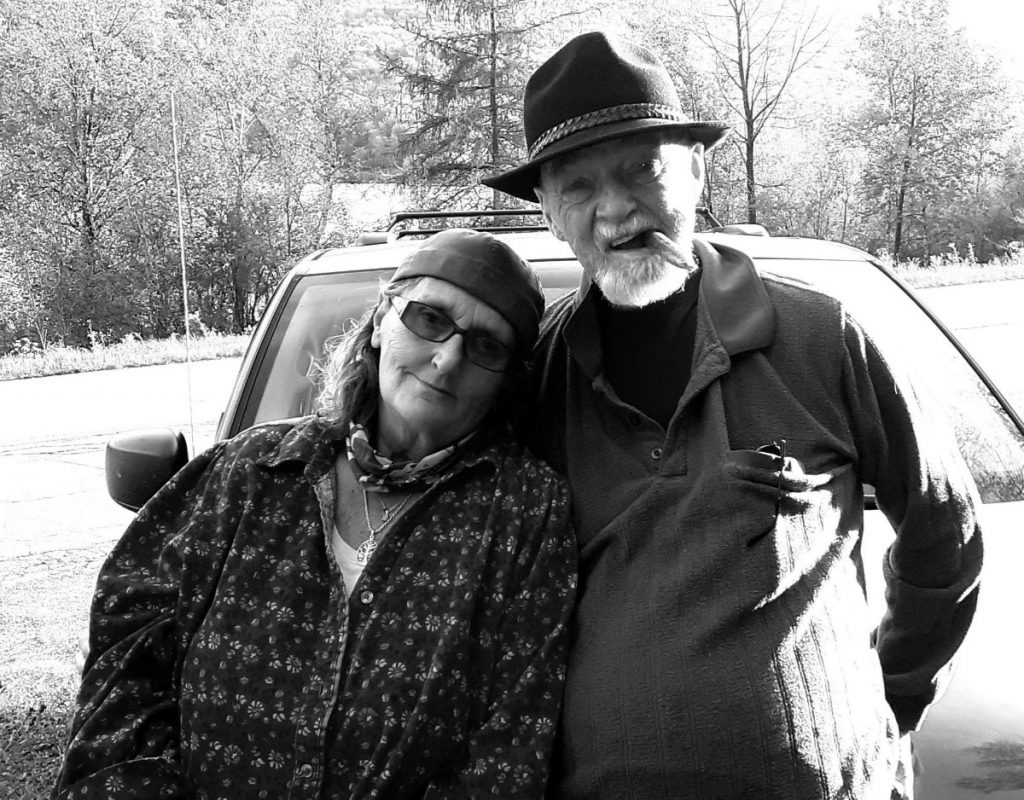
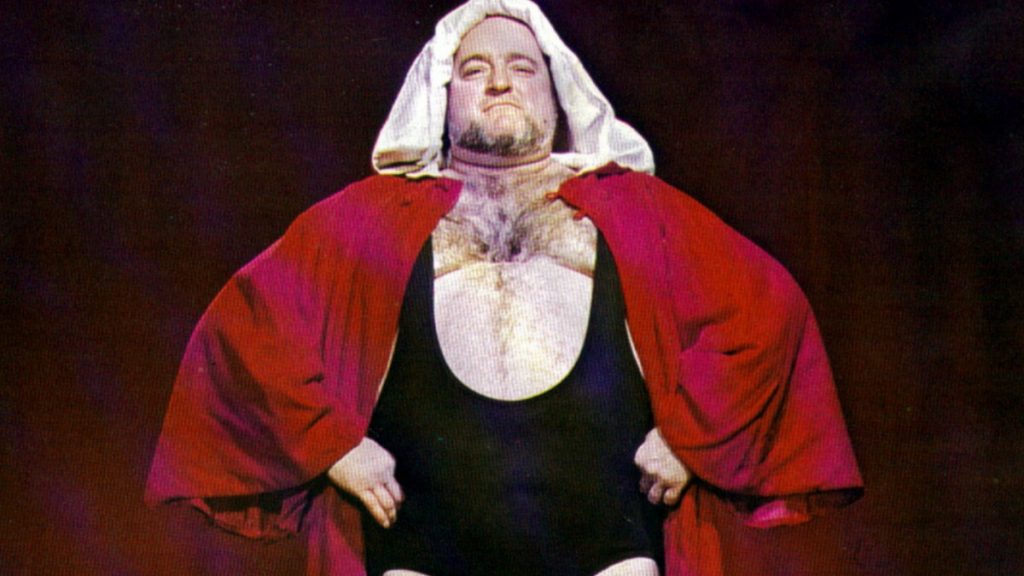
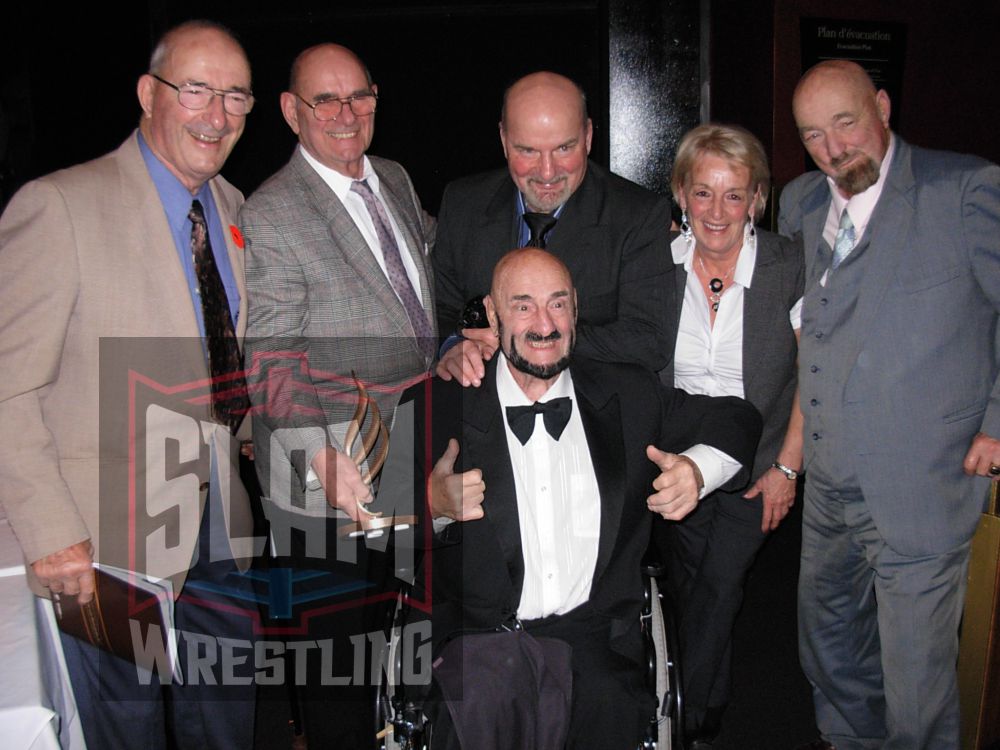
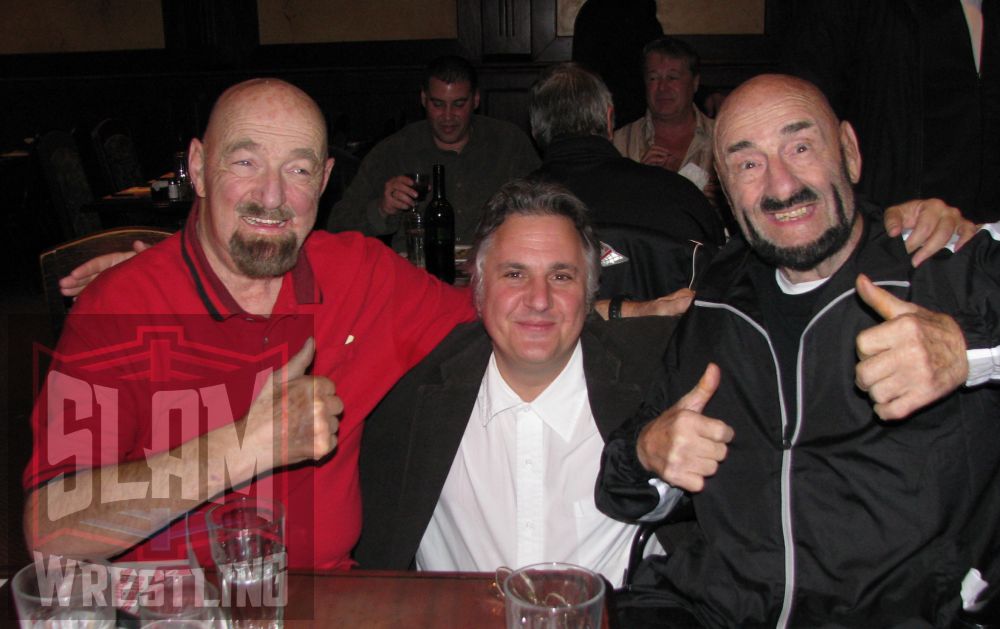
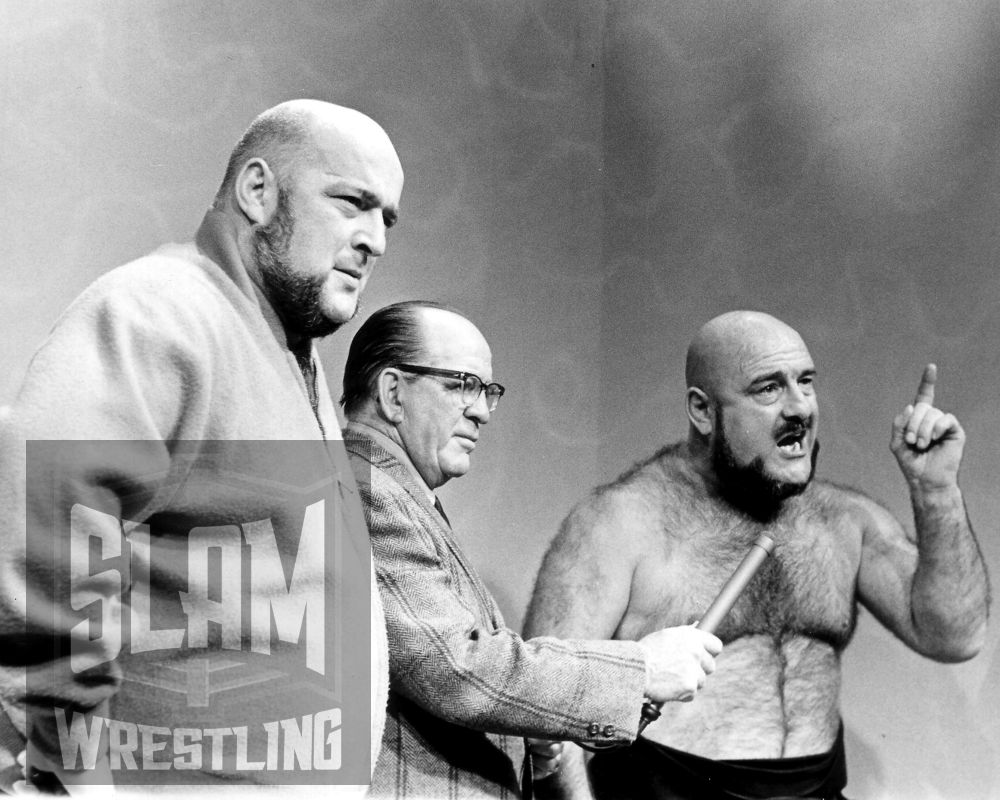
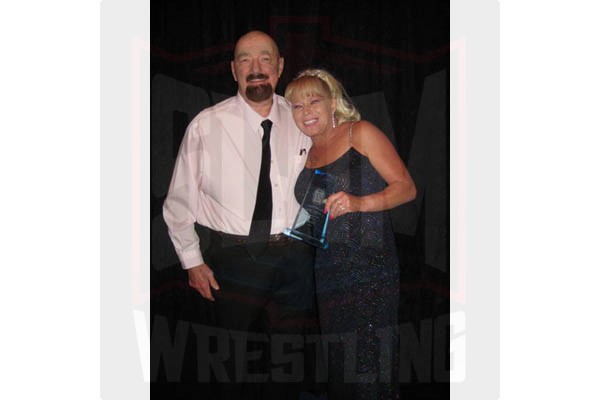
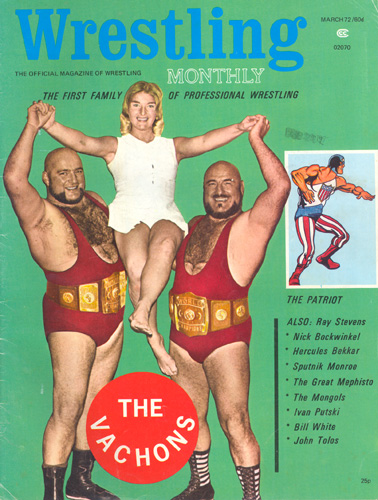
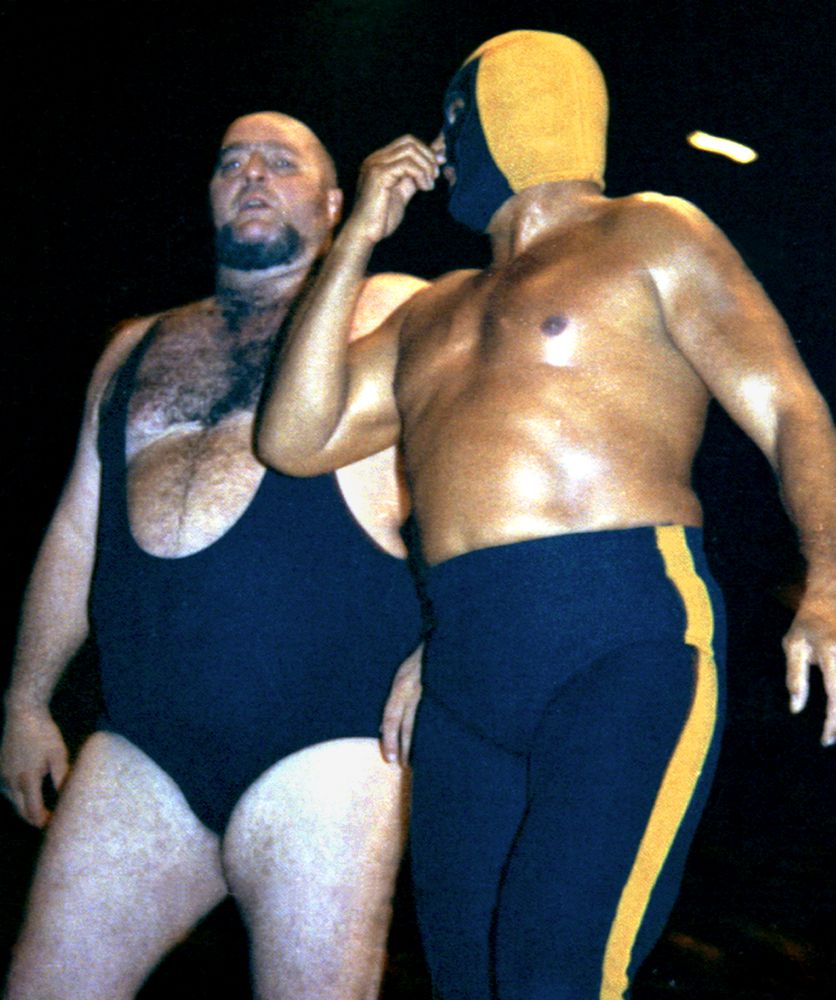

Please don’t say he was the last of the Vachon family. He has a daughter who is his name sake and she would be devastated if she read your article.
He is the last of the 13 brothers and sisters. His seven children are mentioned.